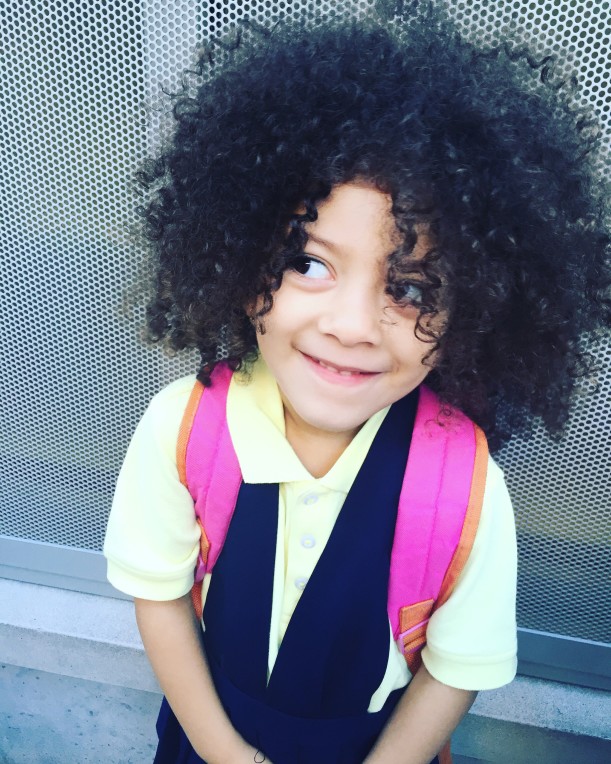 by Cindy Lopez, Educator and Director of Community Engagement, and Joan Baran, PhD, Licensed Psychologist
by Cindy Lopez, Educator and Director of Community Engagement, and Joan Baran, PhD, Licensed Psychologist
School jitters range from anticipating the unknown to wondering about new friends, teachers, rules, classrooms and routines. At any age, help your child get a strong start with these tips.
The first day of school can produce conflicting and confusing emotions for kids and parents. While some children or teens are excited for school to start, others feel anxiety or dread.
Set the stage for a successful school year
1. Find out more about your child’s excitement and concerns.
How is your child feeling about the start of school? What excites him? What is he nervous about? Acknowledge feelings before discussing potential solutions. Often, giving your child a chance to air his feelings will help him relieve anxiety and encourage him to relax.Brainstorm strategies together to address concerns. For example, help an older child or teen come up with his own solutions by asking, “What would help you feel more comfortable in that situation?” Or if your young child is worried about something like forgetting his classmates’ names, give strategies such as encouraging him to ask the person to repeat his name or telling him to listen until he hears someone else say the person’s name.
2. Plan ahead for relaxed mornings.
Reduce the anxiety of hectic mornings by preparing the night before. Pack lunches and backpacks and organize sports equipment. Older kids can pack for school as part of their evening routines. Ensure your child is well-rested by planning and agreeing on early bed times.
3. Discuss new expectations.
Help your child anticipate new routines to reduce stress. Talk about:
- Rules: What rules are likely to be the same from previous classrooms? What rules might be new?
- Schedule: What times can she expect recess, breaks, snack and lunch? Who will drop her off and pick her up? Where will she get picked up?
- Learning names: How will your young child introduce herself to her teachers and classmates? What are some good ways to remember people’s names?
- Learning where things are: Where should she keep her coat and lunch? How will she remember her locker combination?
- Homework: Will homework be new this year or will the homework load increase? How can your child plan to accommodate these changes?
4. Visit campus before school starts.
Especially when transitioning to a new school, seeing the campus and classrooms can help children and teens orient and relax. For elementary age children, visit after your child is assigned a classroom. Often teachers are working in their classrooms to prepare for the start of school and are happy to meet new students.If your child isn’t able to meet his teacher in person, check the school’s website to see if a picture and bio are available. Find out more from neighbors and friends who know the teacher. Talk with your child about how he thinks his teacher is getting ready for the start of school.
5. Find a buddy.
Look for a neighborhood buddy-the same age or older. Arrange for, or, for older children and teens, suggest the two of them go to school together and see each other between periods or at recess. Seeing someone familiar can provide comfort.
6. Acknowledge the milestone of getting through first-day jitters.
Mark the end of your child’s day with a special activity after school or after dinner, if you’re not able to be there after school. Take her out for frozen yogurt, visit her favorite park or browse books at the library. While you’re asking about her day, remember to also find out how she felt during the day and what helped or hurt. Giving her your attention lets her know she’s important and provides valuable reassurance and stability.
7. Attend to your feelings and convey confidence.
Kids are keenly aware of their parents’ emotions. At transition points like the start of kindergarten, middle school or high school, it’s natural for parents to feel a range of emotions from loss to relief. Give yourself time to acknowledge and tend to your feelings. When you express your feelings to your child, be sure to also express confidence in his ability to be successful.
By taking these steps, you’ll be preparing your student for a successful start. You might even hear your child come home saying, “I can’t wait to go back tomorrow!”


Cindy Lopez has worked in K-12 education for about 30 years – as a teacher, an administrator, in public and private schools – most recently focused on kids who learn differently. She leads CHC’s community education and engagement work and host CHC’s Voices of Compassion podcast series.
Joan Baran has over 20 years’ experience working with young children in a variety of settings. Her expertise includes infant and young child assessment, autism spectrum disorders and developmental disabilities.








